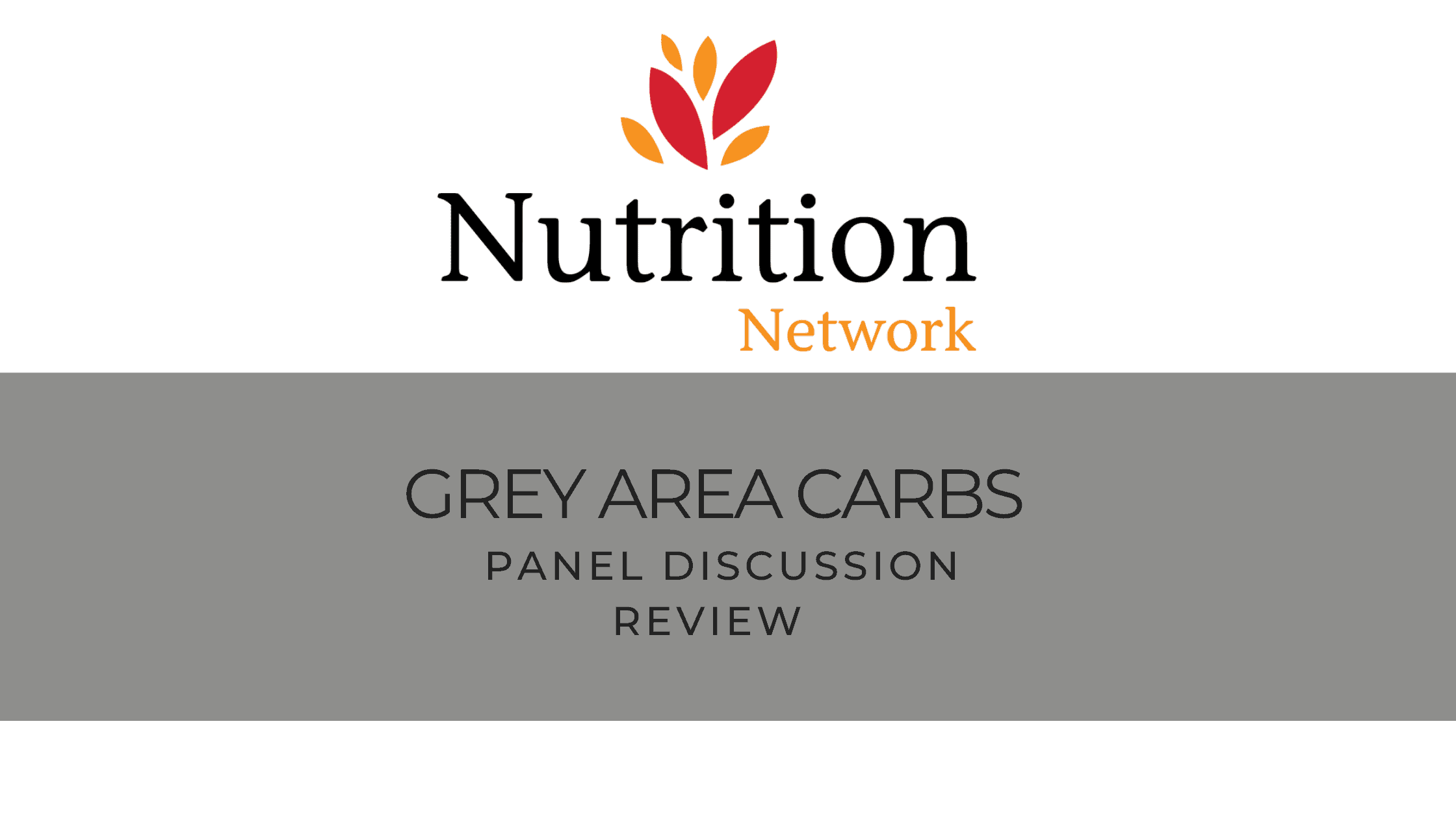

The Nutrition Network is committed to providing expert training to medical professionals, backed by current science and research. As a responsibility to this commitment, the Nutrition Network wishes to highlight the following important points from a recent live panel discussion around whether oats should be included on the LCHF/Keto orange lists or not.
1) Oats should NOT be considered part of a Banting, Keto or Low Carbohydrate Diet.
Due to their high carbohydrate content per serving size, and anti nutrients, oats fall out of the general recommended approved food list for those who are metabolically ill, or carbohydrate intolerant. In this blog post, titled Oats – ‘to orange list or not to orange list?’ That is the question, Registered Dietician Tamzyn Murphy (MSc) references a study by the National Health and Nutrition Examination Survey 2009-2016 which states that approximately 88% of the population suffers suboptimal metabolic health (Reaven GM, 1993), insulin resistance and carbohydrate intolerance (Reaven, 2005). In these people carbohydrates need to be restricted to improve metabolic health (Reaven, 2005).
2) Oats raise blood sugar, thereby reducing diabetic control and hastening fat storage and insulin resistant metabolic disease progression.
In a study done by The Noakes Foundation, different types of breakfast cereals were compared in terms of their effect on blood glucose. In his discussion, Diabetes expert, Dr Neville Wellington showed that the blood glucose spike from oats (for those with Type 2 Diabetes) was in the same high ranges as most common breakfast cereals marketed as Diabetic friendly by Diabetes South Africa. There was a time lag in the glucose spike from oats, but that didn’t decrease the glucose spike. Prof Tim Noakes further stated that any carb eaten by a diabetic that raises glucose will keep blood sugar up for much longer than in a non diabetic.
Image 1: This bar graph shows the average maximal glucose concentration compared to baseline, over a 90 minute period, after ingesting the respective breakfast cereals. Oats (2.7), Future Life (2.9) and Pronutro (2.6) caused comparable spikes in glucose. Only Heba pap caused a glucose spike less than the clinically significant 1.7 mmol/L from baseline.
Image 2: These bar graphs show blood glucose concentrations (y-axes) for each participant (x-axes). Each graph above represents a different breakfast cereal. All breakfast cereals, apart from Heba pap, resulted in blood glucose spikes of 8 mmol/L or higher for most participants.
Rises in blood glucose from high carbohydrate foods, like oats, can reduce diabetes control and increase HbA1c and diabetic progression over time.
In non-diabetics with metabolic dysfunction or prediabetes, rises in blood sugar from foods like oats are also a concern as they raise insulin levels thereby promoting fat storage, and hastening the progression of insulin resistant metabolic disease.
3) Grains, including oats, contain anti-nutrients, which pose multiple health risks.
In a shared consensus, the panel were all in agreement that legumes and grains, including oats, contain anti-nutrients, which pose multiple health risks. Oats’ anti-nutrients include phytates (which bind to and reduce the absorption of various health-promoting minerals), lectins (which increase gut permeability and drive autoimmune disease), and avenin (associated with sensitivities and immune reactions in some people). Oats often contain traces of gluten as well (from cross-contamination with other grains during processing), which can increase gut permeability and adverse reactions, particularly in sensitive individuals (Fasano A. 2012) Nutrition Network Director, Dr Hassina Kajee mentioned that while preparing these foods “correctly” may help to reduce anti-nutrients in most cases, they do not remove them completely. For people with pre-existing autoimmune diseases who are particularly vulnerable, removing and avoiding foods that have the potential to cause harm is vitally important.
4) For those who require a state of nutritional ketosis for medical reasons, oats can potentially thwart treatment aims and may even be potentially dangerous.
Due to the carbohydrate content of oats, consuming this food will raise insulin and therefore reduce ketosis. For a patient who requires strict nutritional ketosis, this would cause them to fall out of ketosis which can exacerbate their medical condition. Examples include strict ketosis for epilepsy control, or therapeutic cancer or Alzheimer’s treatment. Addition of a small amount of oats would move this person out of the optimal range of ketosis and trigger an epileptic fit, resurgence of cancer growth or worsening of Alzheimer’s symptoms respectively.
Prof Tim Noakes concluded that when the issue of starvation was being discussed, due to financial constraints, people may have no other choice but to include higher carb foods like oats in their diet. Prof re-iterated that this was a separate issue of starvation and that oats does not fall within a low carbohydrate diet.
Enrol today to become part of our global network of LCHF/Keto Practitioners.
Click here for our featured list of global LCHF/Keto accredited Nutrition Network Practitioners


